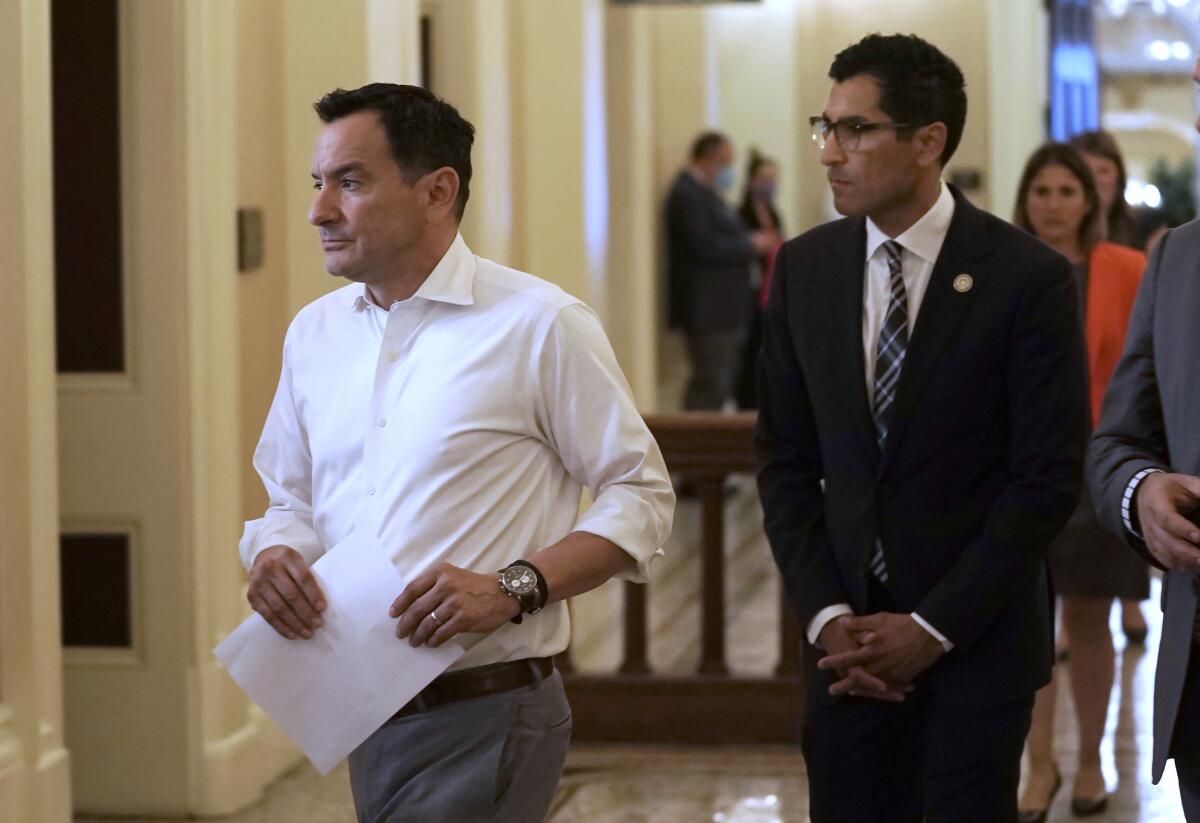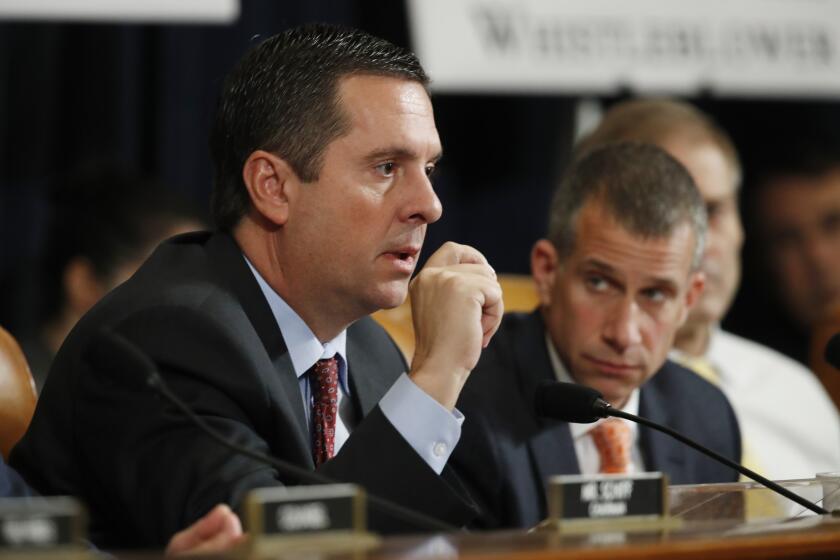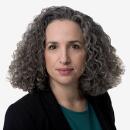Commentary: A huge shake-up is underway in the California Capitol. Voters, this is your moment

- Share via
It was a scene that has not played out in Sacramento for several years: For six hours Tuesday, Democratic Assembly members huddled behind closed doors in the state Capitol, debating whether to oust Speaker Anthony Rendon, one of the most powerful politicians in California.
Battles for the speakership used to take place about every two years, but Rendon has held onto his position for more than six years — longer than any speaker since Willie Brown left the post in 1995.
Now, however, lawmakers are getting restless.
It’s evident not only in the unusual standoff over when Rendon will be replaced as speaker by Assemblyman Robert Rivas (D-Hollister), but also in the historic number of lawmakers who are leaving the Legislature. More than a quarter of those sworn in at the beginning of the current two-year session will be gone by the time the next session starts in December — reflecting an abnormal spate of midterm resignations and decisions not to run for reelection.
With several politicians stepping down, some California voters face up to four elections next year to choose who represents them in Sacramento or D.C.
The reasons vary. With limits on in-person staffing and fewer social gatherings, the COVID-19 pandemic has made the job more complicated and less glamorous. Some lawmakers bailed after California’s independent redistricting commission drew new political boundaries that put them in more competitive districts. Another factor is a change in term limits that allows legislators to run for reelection for up to 12 years. The first crop facing that limit — those elected in 2012 — are nearing their cap, and some decided they’ve had enough. Some are running for a different office, others are taking jobs in the private sector.
All this churn raises the stakes in the June 7 primary, in which the two candidates who get the most votes will advance to the general election. The vacancies create an enormous opportunity for interest groups that lobby the Legislature to try to influence who will hold office. “Select and elect” is the shorthand for their method, stemming from an infamous Sacramento lobbyist named Artie Samish. “I selected the candidates that I thought would be agreeable to my clients, and I saw that they got elected,” he wrote in 1971.
The players are different now. The rules have evolved. The sums of money are bigger. But the same basic concept still holds. Businesses, labor unions and other interests pick candidates they think will take their side on key issues and pour money into political campaigns — to the tune of more than $141 million so far this election cycle.
But the opportunity here really belongs to voters. Turnover in the Legislature is your chance to shape how California handles the most important issues of our time. If you care about climate change, gun safety, abortion access, regulating Big Tech, building more housing, changing the criminal justice system or making college more affordable, then you should care about who represents you in Sacramento. That’s because while lawmakers in Washington constantly deadlock in partisan stalemates, California is busy passing hundreds of new state laws each year.
Yes, the Legislature is dominated by Democrats, and that’s not likely to change in this election or anytime soon. But Democrats come in different shades of blue. And with Republicans so drastically outnumbered — they make up about one-fourth of the Legislature — the biggest fights in Sacramento are those that divide Democrats. Moderate and progressive Democrats routinely split on environmental issues, which is why energy companies and their unionized employees spend heavily to sway legislative races. But Democrats also differ on housing, healthcare, tech and criminal justice bills.
So who do you want to represent you? Los Angeles voters will send several new lawmakers to Sacramento this year. The Times editorial board interviewed candidates for the L.A.-based legislative seats we deemed most competitive in the primary. Check out our endorsements at latimes.com/endorsements.
Here are the L.A. Times’ editorial board endorsements for elected offices in Los Angeles city and county, LAUSD, superior court, statewide offices, the state legislature and U.S. House and Senate seats.
Voters in Orange County, San Diego, the Central Valley and the Bay Area are also choosing new state lawmakers this year. What does all this have to do with that tussle over the speakership that roiled Sacramento last week? And why does it matter? The speaker holds tremendous power to determine what can become law in California, and shape how the state spends hundreds of billions of taxpayer dollars each year. Rendon has led with an unusual bent for disseminating power among committee chairs, a style that has earned him loyalty from some members but also allowed chaos to fester.
Desperate to save face after the embarrassing standoff in which Rivas appeared to have prematurely announced his win and Rendon seemed to be grasping for power, the two men issued a carefully worded joint statement.
Rendon said Rivas has support from “a majority of the current Democratic caucus” to become the next speaker. Rivas acknowledged that the caucus wants Rendon to remain speaker “for at least the rest of this legislative session.”
I italicized the key words that show this leadership fight could be influenced by whoever is elected this year. Rendon told colleagues he plans to run for speaker again when the new session begins after the election. So an influx of new Democratic Assembly members could sway how soon power shifts to Rivas, or whether it remains with Rendon.
Which has both of them spending campaign money in an effort to select and elect who represents you.
More to Read
A cure for the common opinion
Get thought-provoking perspectives with our weekly newsletter.
You may occasionally receive promotional content from the Los Angeles Times.













